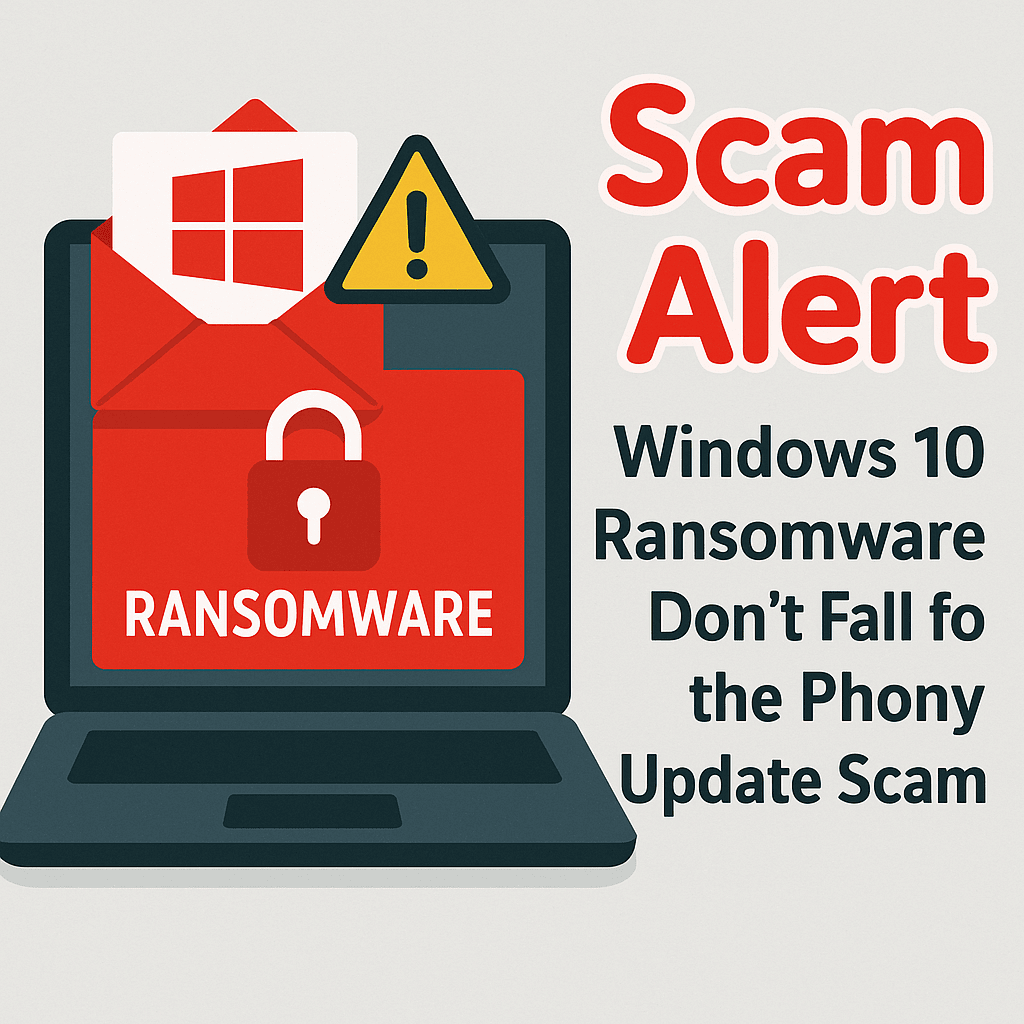Microsoft is upgrading Windows users for free via desktop notifications, so ignore any emails promising early access or updates. The scam can cause a major headache, but avoiding it is easy by simply ignoring these emails.
Learn more: ZDNet – Windows 10 Scam Email Will Encrypt Your Files for Ransom
Tip: Always download updates directly from the official Windows website or wait for automatic notifications. Avoid third-party download links to prevent exposure to malicious software.
Scam Alert: Phony iPhone Fix – How to Avoid a $80 Scam
Scammers often trick users into paying for a non-existent fix. Remember, if your device has problems, always go through Apple’s official support channels.
Read more: NY Daily News – iOS Scam Demands Money to Unfreeze Browsers on iPhone and iPad
Tip: If you encounter a pop-up offering a quick fix for any iOS issue, don’t call the number and don’t provide any personal details. Instead, visit the official Apple support website for assistance.
Scam Alert: Craigslist Scams – Protect Yourself from Fraudsters
- A man from Boulder, CO, posed as a female seller to offload fake Disney park tickets.
- A woman in Texas unknowingly bought her stolen dog back after it was listed on the site.
- A Tennessee woman lost $6,700 after selling a race car using counterfeit money.
Scammers use Craigslist to trick you into paying for non-existent products, so always meet in person and use caution when dealing with online transactions.
Learn more: KDVR – Boulder Man Arrested for Disney Ticket Scam on Craigslist
Learn more: ABC7 News – Scam Steals Dogs, Puts Them Up for Sale on Craigslist
Learn more: WATE News – Knoxville Woman Loses $6,700 in Craigslist Counterfeit Money Scam
Tip: Always arrange to meet sellers in public places, such as coffee shops, and never give personal information over the phone or online.
Scam Alert: Utility Scams – Don’t Be Fooled by Fake Payment Requests
If you receive such a call, do not pay. Instead, look up your utility company’s number and call them directly to confirm your payment status.
Learn more: WUSA9 – DC Warns Businesses of Phony Pepco Scam
Learn more: Mercury News – Palo Alto Warning Issued About New Utilities Scam
Tip: Always check your utility company’s official website or call their customer service number directly to confirm account details if you receive any suspicious calls.
Scam Alert: Florida – The ‘Fraud Capital’ of America
Whether you’re visiting Florida for vacation or retiring there, stay alert to avoid becoming part of the statistics.
Read more: Fortune – South Florida Fraud
Tip: Be cautious with unsolicited phone calls or emails requesting personal information. If in doubt, contact local authorities to report any suspicious activity.
Scam Alert: Timeshare Closing Fees – A Scam to Watch Out For
If you’re ever asked for an upfront fee in a deal, especially a timeshare transaction, beware—it’s likely a scam.
Tip: Always ensure that any money or fees you are asked to pay are through legitimate and verified channels before proceeding.
Tips to Keep You Safe
- Social Media Scams: Scammers are impersonating friends or family members on Facebook to gain access to your profile and steal personal information. Protect your account with strong passwords and enable two-factor authentication.
- Hotel Booking Scams: Beware of fake hotel booking websites, which can lead you to fraudulent sites where you pay for a stay that doesn’t exist. Always use trusted booking platforms or verify directly with the hotel.
- Wi-Fi Scams: Avoid using unsecured public Wi-Fi networks for sensitive transactions, as they can be a breeding ground for hackers. Use a VPN (Virtual Private Network) for secure browsing on public networks.


